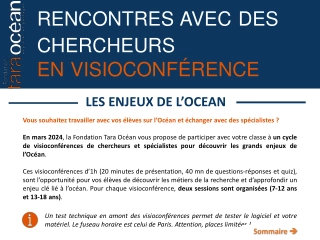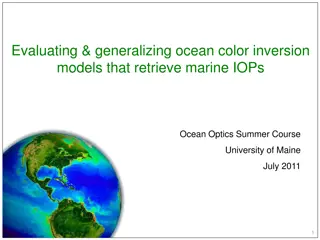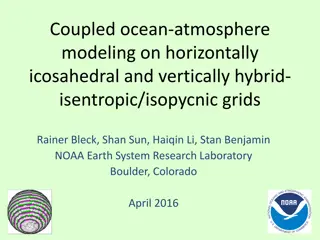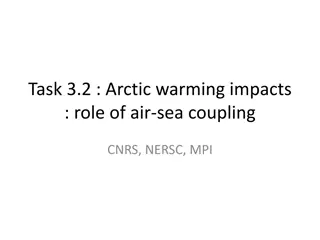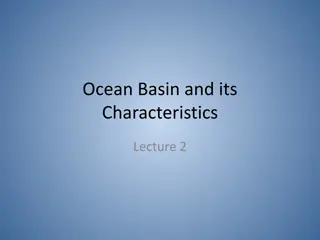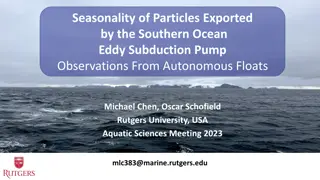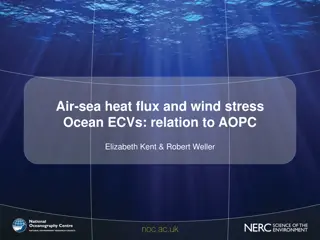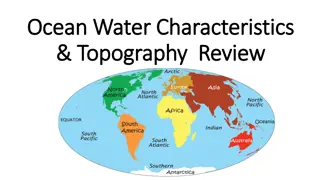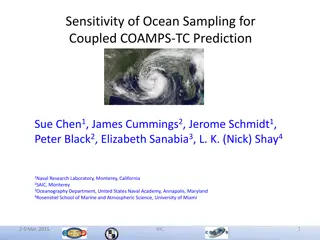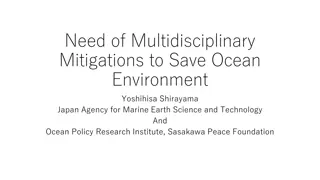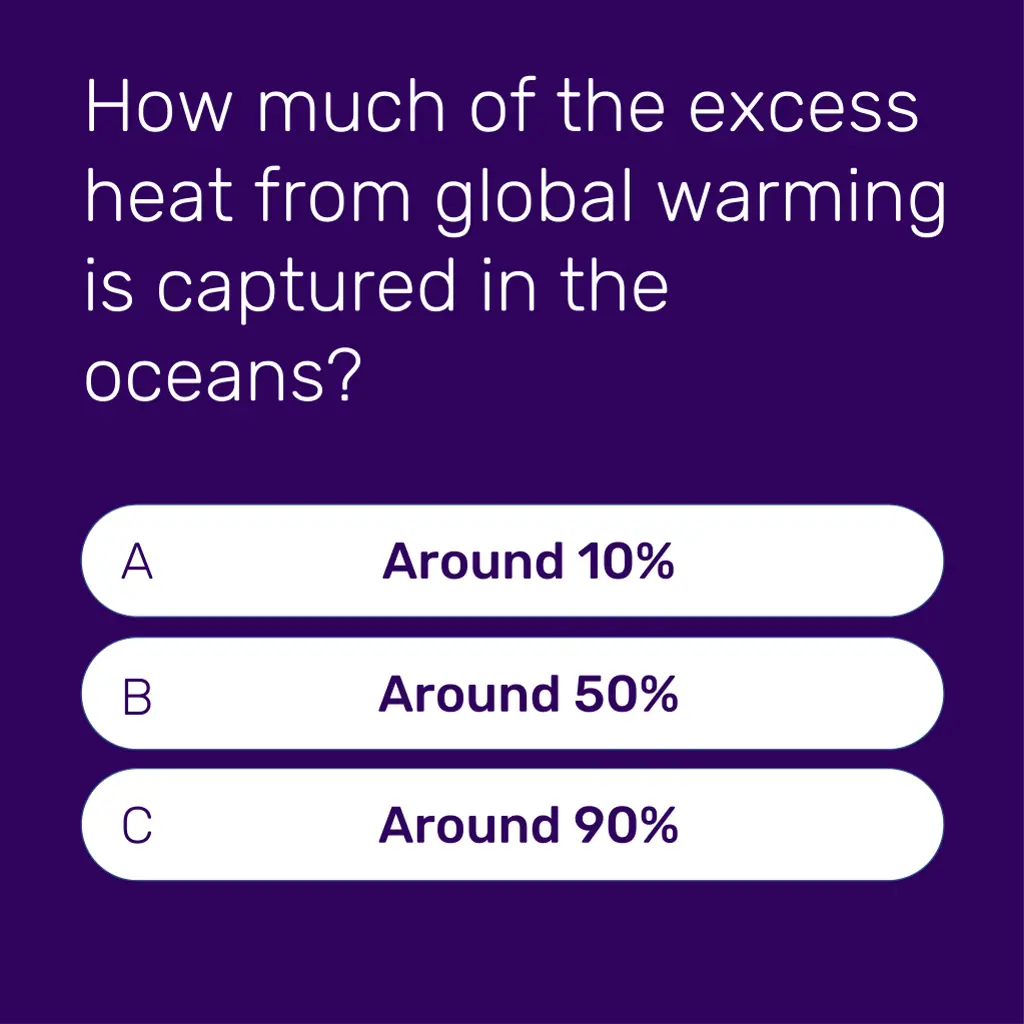
Excess Heat from Global Warming: Ocean Heat Capture Misconception Clarified
Discover the truth about the capture of excess heat from global warming in the oceans. Most people underestimate the impact of ocean heat retention, leading to a misconception in understanding climate change. Learn why the oceans play a critical role in absorbing heat and the consequences of neglecting this vital aspect.
Uploaded on | 2 Views
Download Presentation

Please find below an Image/Link to download the presentation.
The content on the website is provided AS IS for your information and personal use only. It may not be sold, licensed, or shared on other websites without obtaining consent from the author. If you encounter any issues during the download, it is possible that the publisher has removed the file from their server.
You are allowed to download the files provided on this website for personal or commercial use, subject to the condition that they are used lawfully. All files are the property of their respective owners.
The content on the website is provided AS IS for your information and personal use only. It may not be sold, licensed, or shared on other websites without obtaining consent from the author.
E N D
Presentation Transcript
How much of the excess heat from global warming is captured in the oceans? Around 10% A Around 50% B Around 90% C
Excess heat from global warming 2010 1990 2000 1980
Excess heat from global warming 2010 2000 1970 1980 1990
Excess heat from global warming 2010 2000 1970 1980 1990
Excess heat from global warming 91% in oceans 2010 2000 1970 1980 1990
Excess heat from global warming 91% in oceans 2010 2000 1970 1980 1990
Most excess heat from global warming in air, land & ice 9% in oceans 91% is hiding in the oceans Most people completely underestimate global warming, because they believe they can feel it in the air. But almost all the excess heat since 1980 is captured in the oceans. The water in the upper 75 meters is now half a degree Celsius warmer. This extra heat expands the water and causes sea level rise and will keep the planet warm long after CO2 emissions have stopped. 2010 2000 1970 1980 1990 gapminder.org/5 Source: IPCC AR6
QUESTION How much of the excess heat from global warming is captured in the oceans? A. 10% B. 50% C. 90% CORRECT VERY WRONG WRONG RESULTS from 4 nordic countries 8% 38% 59% People underestimate how much global warming is hiding in the oceans. gapminder.org/5 Data from Ipsos MORI 2019, 1036 respondents
RESULTS from 31 countries How much of the excess heat from global warming is captured in the oceans? 60% 90% WRONG CORRECT 30% VERY WRONG This shows how many people in each country answered what option. gapminder.org/5 Ipsos MORI 2019, 500 respondents/country
See how Gapminder uses these slides in the video called: Excess heat is hiding in the oceans How to use this slideshow 1. Test your audience with the fact question 2. Discuss why most people believe so little heat from global warming ends up in the oceans 3. Show the trend of excess heat captured in the oceans 4. Discuss how neglecting the warming of oceans leads to underestimating the total global warming Why Gapminder made these slides A vast majority of people, think the discussion about global warming is all about increasing air temperature, but in reality, 90% of the excess heat is captured in the oceans. Why it is a problem to be wrong about this If you believe global warming is all about the air temperature, you re not realising how much heat is accumulated. The oceans serve as a huge heat reservoir delaying the changes to the air temperature. The enormous amount of heat accumulated in the oceans will continue to warm up the air and land for hundreds of years, even after we stop our greenhouse gas emissions.
See how Gapminder uses these slides, here GAPMINDER.ORG/5 These slides are part of Gapminder s free teaching materials available under Creative Common BY License. Which means you can copy, edit and share them, as long as you mention gapminder.org/5 for a fact-based worldview

